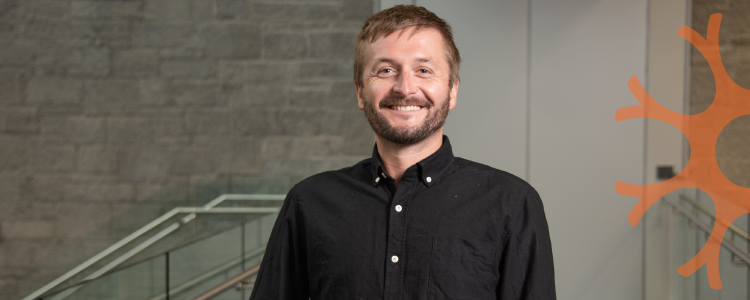

Boris Bernhardt, PhD, is Assistant Professor of Neurology and Neurosurgery, Canada Research Chair, and directs the Multimodal Imaging and Connectome Analysis Lab at The Neuro.
He joined the Azrieli Centre for Autism Research (ACAR) in 2018.
What drives your research?
Autism is a neurodevelopmental condition that is both very common and complex. Despite ample research efforts in the past decades, there are important gaps in our understanding of what autism is, what the associated neurobiological mechanisms are, and how to best assist individuals with autism.
By developing novel ways to capture the organization of structural and functional brain networks in single individuals, my research aims to bridge behavioural symptoms and biological mechanisms of autism. For example, we have developed novel approaches to quantify alterations in brain connectivity (Hong et al. 2019 Nature Communications) in autistic individuals relative to neurotypical controls.
Moreover, we have been studying inter-individual variability in brain structure and functional network organization, and how these changes relate to observable autism symptoms (cf. Hong et al. 2018 Cerebral Cortex, Benkarim et al. 2021 Comms Biology).
Finally, we have related neuroimaging-based markers of brain network alterations in autistic people to computational simulation approaches as well as transcriptionic assessments, to provide novel insights into microcircuit imbalances in the condition (Park et al. 2021 Nature Communications).
How will your research help to improve the lives of autistic individuals?
By studying the brain across multiple spatial scales (incorporating large-scale network models, neuroimaging markers, as well as histological and gene expression information), I hope to contribute to a better understanding of the neural substrates associated with the autism spectrum.
My research furthermore investigates biological factors that contribute to inter-individual differences across people with an autism diagnosis, and aims at helping to define clinically relevant outcome measures as well as novel therapeutic targets.
How has ACAR helped to advance your research?
Our research and several trainees have benefitted from funding and networking opportunities from both the Azrieli Centre for Autism Research (ACAR) and the provincial network, the Transforming Autism Care Consoritum (TACC). This support has been instrumental in advancing our autism-related research program.
Biography
Boris Bernhardt, PhD, is Assistant Professor of Neurology and Neurosurgery, Canada Research Chair, and directs the Multimodal Imaging and Connectome Analysis Lab at The Neuro.
His lab studies the role of structural and functional brain network organization in higher-order cognition in healthy and diseased populations, notably epilepsy and autism. To this end, they develop neuroinformatics approaches that integrate macroscale connectome models with neuroimaging, 3D histology, and transcriptomics.
He has published more than 130 peer-reviewed articles and his team made several software packages and datasets for multiscale human brain cartography openly available (e.g., BrainSpace, Enigma Toolbox, Big Brain Warp).
Research Areas
Neuroscience, Neuroimaging, Neuroinformatics, Connectomics, Cognitive Neuroscience
List of Selected Publications
Link(s)





